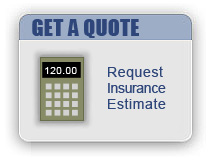Insurance Dictionary
Additional Named Insured
An individual or entity who is added to a policy with the status of named insured after the policy is written. Such an individual or entity would have the same rights and responsibilities as an individual or entity named as an insured in the policy declarations (other than those rights and responsibilities reserved to the first named insured). In this sense the term can be contrasted with additional insured, an individual or entity added to a policy as an insured but not as a named insured.
Audit
An examination of the insured's books and records to determine actual exposures for the purpose of premium compensation, manufacturer's and contractor's liability, product liability, and reporting form lines and on automobile fleet, gross receipts, and garage payroll policies, where premium is based on such items as the insured's payroll, gross receipts, values on hand, owned automobiles, or units handled or sold.
Automobile Insurance
The insurance of automobiles involves two basic types of coverage: (1) Comprehensive - liability insurance coverage for losses caused by injuries to persons and legal liability imposed on the insured for such injury or for damage to property of others; and (2) Collision - physical damage insurance coverage for losses caused by damage to or loss of insured automobile.
- Hired Automobiles - Covers liability for the use of hired automobiles in your business.
- No-Fault Automobile Insurance - In general terms, this is an automobile insurance system whereby economic loss benefits are paid directly to injured individuals without regard to who is at fault in an accident.
- Non-Owned Automobiles - Covers liability for the use of non-owned automobiles in your business. An example would be an employee using his/her own car on an errand for you.
- Uninsured Motorists - Protects insureds who are not contributorily negligent against bodily injury caused by negligent uninsured motorists.
Business Interruption Coverage (BI)
Business Interruption insurance provides loss of income coverage for your business by replacing your operating income during the period when damage to the premises or other property prevents income from being earned. Business Interruption coverage is invoked only after you suffer a loss that is covered by the terms of your Property policy. This form of insurance provides loss of income coverage (i.e., "disability income") for your business by replacing your operating income during the period when damage to the premises or other property prevents income from being earned.
Deductible
Specifies an amount to be deducted from any loss, or makes the company liable only for the excess of a stated amount. Used largely on risks where many small losses may be expected, e.g., scratches or dents to automobile bodies in "collision insurance."
Employee Dishonesty Coverage
Protects an employer from financial loss due to the fraudulent activities of one or more employees. The coverage includes protection for loss of money, securities, and other property of the insured.
Employment Practices Liability Coverage (EPL)
Protects the corporation, directors and officers and employees for claims resulting from wrongful termination, discrimination, sexual harassment, wrongful discipline and failure to employ or promote.
Excess Liability
Liability insurance designed to provide an extra layer of coverage above the primary layer. The excess insurance does not respond, however, until the limits of liability in the primary layer have been exhausted. Because of the method of response, it is often much less costly than the primary layer, per $1,000,000 of coverage. The excess layer provides not only higher limits, but catastrophic protection for very large losses.
General Liability
This policy will pay on behalf of the Insured amounts the Insured becomes legally liable to pay due to bodily injury, property damage or personal injury to third parties resulting from the Insured's premises liability, contractual liability, products liability and personal or advertising liability. Product Liability may be covered under a separate policy considering the nature of the product. Coverage for Employee Benefits Liability can also be endorsed.
Property Insurance
Property insurance covers your property of every description against loss caused by any covered peril such as fire, windstorm or lightning. Property policies typically define the covered perils by first insuring all perils then specifically excluding the perils that do not apply.
Umbrella Policy
A liability policy designed to provide an excess layer of limits (usually in amounts of at least $5 million), typically over a firm's primary commercial general liability, auto and employer's liability policies. Coverage is provided for those same exposures covered in the underlying policies, subject to the same exclusions if it is "following form". In addition, the umbrella usually provides broader coverage than the underlying policies, with a substantial SIR (often $10,000 or more) which applies to losses, which are covered under the umbrella but are not covered by the primary policies.
Workers' Compensation and Employer's Liability
Workers' Compensation provides protection to the employer against liability imposed by law to pay benefits to any worker injured in the course of and arising out of employment, without regard to fault or negligence on the employer's part or any other person. In addition to providing for payment of benefits to covered employees as prescribed by law, workers' compensation insurance provides employer's liability coverage to protect the employer against claims for damages brought by employees or others when the loss is not covered under workers' compensation.



